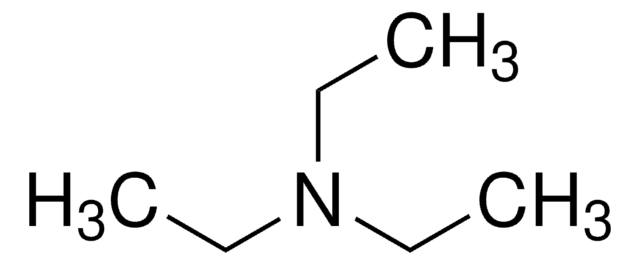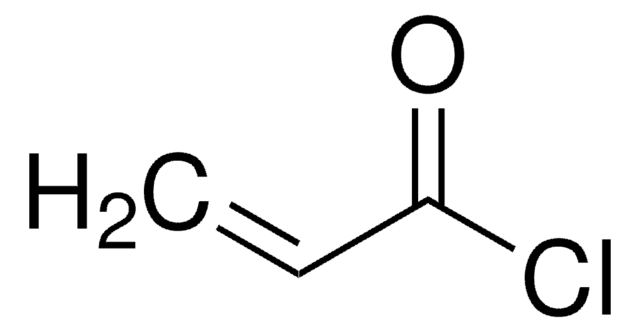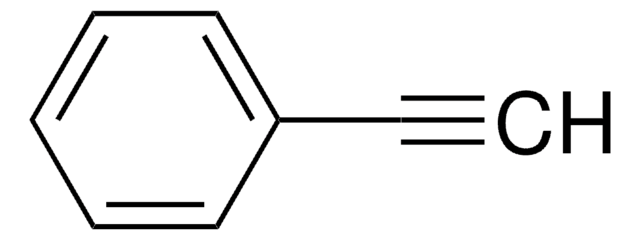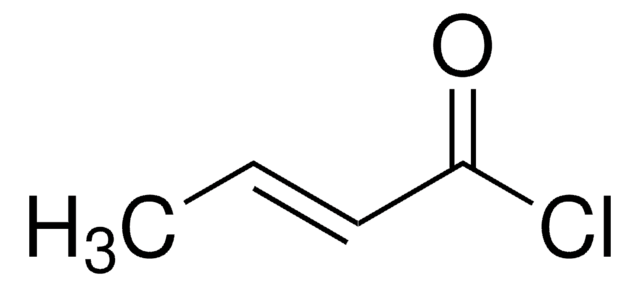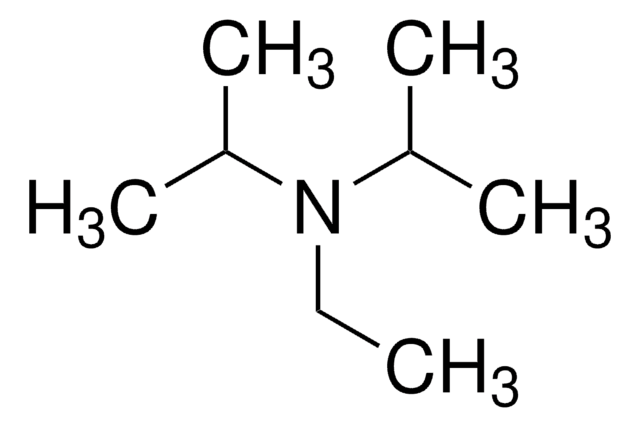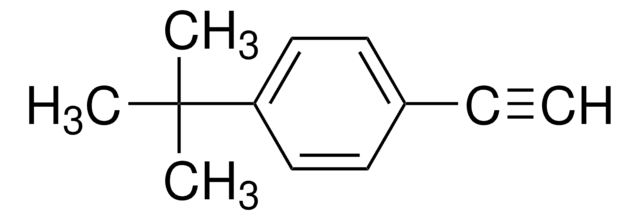523216
Methacryloyl chloride
97%, contains ~200 ppm monomethyl ether hydroquinone as stabilizer
Synonym(s):
α-Methylacryloyl chloride, 2-Methyl-2-propenoyl chloride, 2-Methylacryloyl chloride, 2-Methylpropenoic acid chloride, Methacrylic acid chloride, Methacrylic chloride
About This Item
Recommended Products
Quality Level
Assay
97%
contains
~200 ppm monomethyl ether hydroquinone as stabilizer
refractive index
n20/D 1.442 (lit.)
bp
95-96 °C (lit.)
density
1.07 g/mL at 25 °C (lit.)
storage temp.
−20°C
SMILES string
CC(=C)C(Cl)=O
InChI
1S/C4H5ClO/c1-3(2)4(5)6/h1H2,2H3
InChI key
VHRYZQNGTZXDNX-UHFFFAOYSA-N
Looking for similar products? Visit Product Comparison Guide
Related Categories
General description
Application
- Monomer 2-methacrylamido-caprolactam was prepared by reacting methacryloyl chloride with racemic a-amino-e-caprolactam.
- Functional monomer was prepared by reacting methacryloyl chloride and L-histidine.
- A series of amide monomers were synthesized by amidation of methacryloyl chloride with amines and grafted onto commercial poly(ether sulfone) (PES) membranes using irradiation from atmospheric pressure plasma (APP).
- Reaction of methacryloyl chloride with the hydroxyl groups on the surfaces of HEMA/NVP microspheres was performed, leading to the introduction of polymerisable double bonds onto the surfaces of microspheres.
- Star-shaped poly(d,l-lactide) oligomers with 2, 3 and 6 arms were synthesised, end-functionalised with methacryloyl chloride and photo-crosslinked in the presence of ethyl lactate as a non-reactive diluent.
Signal Word
Danger
Hazard Statements
Precautionary Statements
Hazard Classifications
Acute Tox. 1 Inhalation - Acute Tox. 4 Oral - Aquatic Chronic 3 - Eye Dam. 1 - Flam. Liq. 2 - Skin Corr. 1B - Skin Sens. 1
Storage Class Code
3 - Flammable liquids
WGK
WGK 2
Flash Point(F)
55.0 °F - closed cup
Flash Point(C)
12.8 °C - closed cup
Personal Protective Equipment
Certificates of Analysis (COA)
Search for Certificates of Analysis (COA) by entering the products Lot/Batch Number. Lot and Batch Numbers can be found on a product’s label following the words ‘Lot’ or ‘Batch’.
Already Own This Product?
Find documentation for the products that you have recently purchased in the Document Library.
Our team of scientists has experience in all areas of research including Life Science, Material Science, Chemical Synthesis, Chromatography, Analytical and many others.
Contact Technical Service